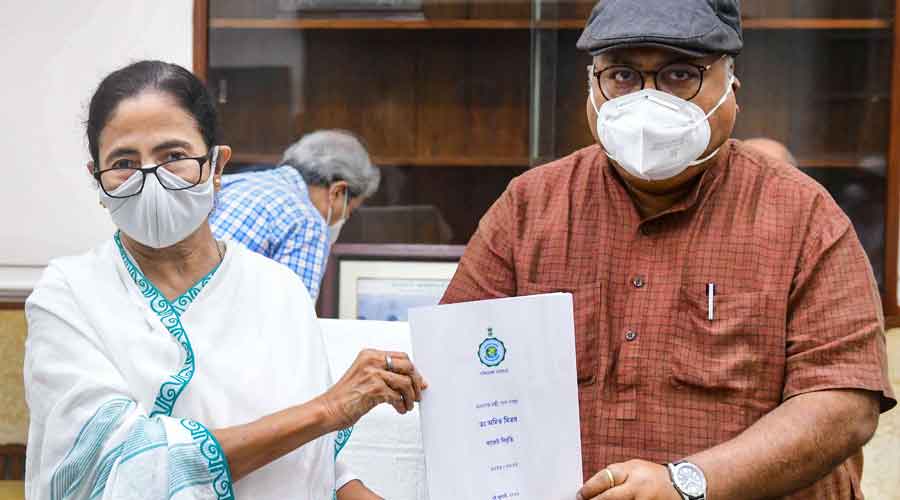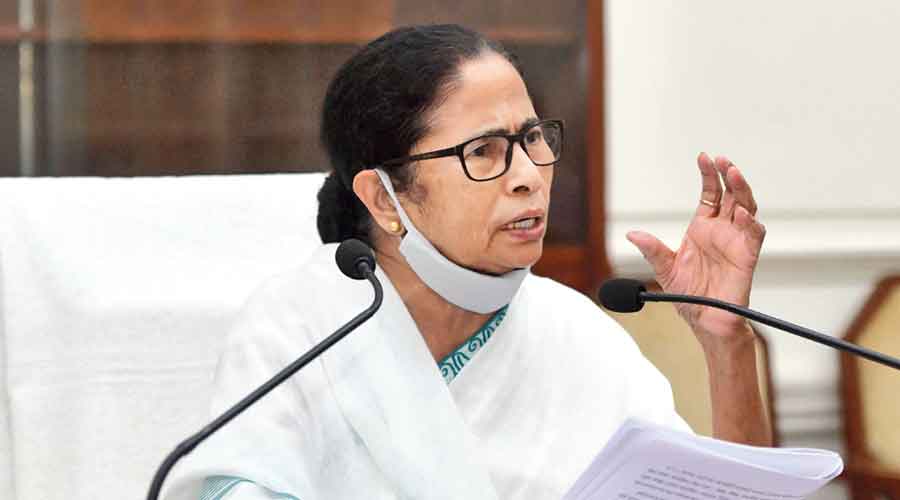The Mamata Banerjee government has announced a 2 per cent stamp duty rebate for registration of property deeds and a 10 per cent reduction in circle rates in an effort to ratchet up demand in Bengal’s real estate.
The tax break was the most attractive element in the Rs 3.08 lakh crore state budget for 2021-22 that industries minister Partha Chatterjee read out in the Assembly on Wednesday on behalf of finance minister Amit Mitra.
A home buyer can save as much as 30-35 per cent on stamp duty payment and registration fees as a result of the tax rebate.
The benefit of the stamp duty cut and the reduction in the circle rates — the minimum value at which a property in a particular neighbourhood can be bought or sold — will be available if the property registration process is completed by October 30.
A property valued up to Rs 1 crore attracts 6 per cent stamp duty in urban areas
and 5 per cent in panchayat areas.
Properties valued over Rs 1 crore draw an additional 1 per cent stamp duty in both urban and rural areas at present.
Following the budget proposals, stamp duty will come down to 4 per cent and 3 per cent in urban and rural areas, respectively, for properties up to Rs 1 crore, and 5 per cent and 4 per cent for properties above that ceiling.
The reduction in the circle rates by 10 per cent will also greatly benefit buyers of property. In many places, the circle rate is said to be way above the market value and acts as a deal breaker in closing transactions for high-value properties since it also carries income tax implications.
As an illustrative example, a property with a market value of Rs 50 lakh can save up Rs 120,000 on account of the reduction in the stamp duty and circle rate and another Rs 5,550 because of the fall in registration fees, translating into a gain of 35 per cent on these heads for the buyer, according to a calculation done by NK Realtors.
“We all are aware that due to the Covid 19 pandemic our state along with the country as a whole is reeling under economic recession. This has resulted in curtailing the purchasing power of the people. The real estate sector has also been greatly affected due to this crisis. In this critical situation, the state government is allowing relief to the registrant public by reducing the rate of stamp duty for registration of deeds affecting sale, lease of land/house/flat etc,” the government said in the budget speech.
Real estate mandarins were ecstatic over the move and said it would bring property buyers back and help fill the state government’s coffers.
“While the transaction cost will come down for the buyer, it will also help developers to clear inventory, which in turn would mean better cash flows. The revenue generation for the government will also be accelerated, as witnessed in Maharashtra. It is a win-win for all,” Harsh V. Patodia, the national president of Credai, said in the evening.
Maharashtra — which has two of the country’s top real estate markets in Mumbai and Pune — had cut stamp duty from 5 per cent to 2 per cent from September 1, 2020, to December 31 and to 3 per cent between January 1 and March 31 to boost demand.
As a result, the registration rate in Mumbai soared by 112 per cent in September 2020 from the previous month and the momentum continued till March. Mumbai recorded nearly as many property registrations in 2020 (65,272 units) as in 2019. In the first three months of this year, it had crossed the half-way mark of 2020, a Knight Frank report shows. The government also earned 50 per cent more revenue from property registrations.
Bengal had earned Rs 6,200 crore on account of stamp duty and registration fees in 2020-21 and it is projected to earn Rs 7,245 crore in this financial year.
Sushil Mohta, chairman of Merlin Group, said the announcement would encourage the real estate segment to launch new projects and infuse fresh investment into the sector.
The reduction in the circle rate, which is notified by the government, will also soften the potential income tax incidence on property sales.
Both buyer and seller are liable to pay tax at the applicable rate on deemed income if the circle value is more than 10 per cent of the transaction value.
“Many large transactions, which have been stuck due to adverse tax implications arising from the difference between the circle rate and the transaction rate, may get concluded now,” said Jitendra Khaitan, chairman and managing director of Pioneer Properties.
Given that over 200 industries and a huge workforce is linked to the real estate sector, buoyancy will have a major trickle-down effect, said Biplab Kumar, vice-president of NK Realtors.












